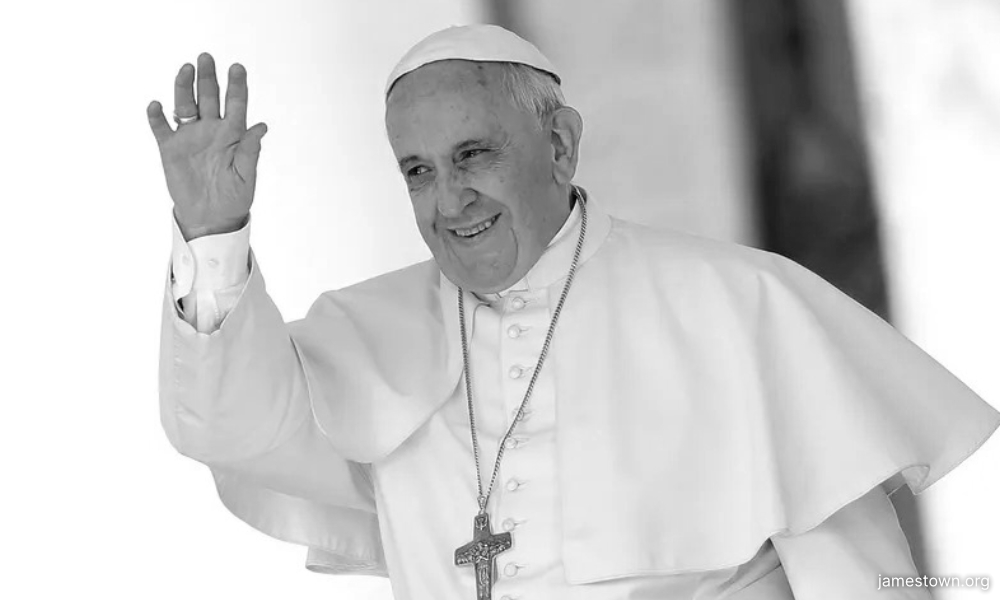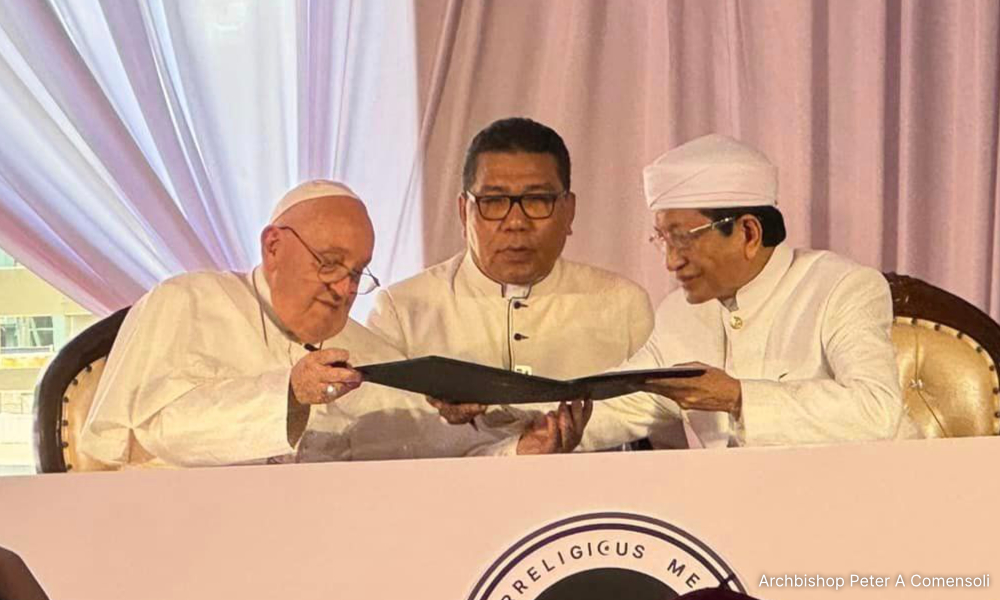The passing of Pope Francis, the Jesuit Catholic “people’s pope” leaves a vacuum of global moral leadership.
Laid to rest yesterday in an unadorned coffin marked simply with Franciscus, the decision to be buried outside the walls of the Vatican is both symbolic and substantive.
In the 12 years he led the Catholic church, Pope Francis’ vista was broad. His outreach to those on the margins is inclusive.
From the treatment of migrants and transgendered people to the war in Gaza, he spoke truth to power through a lens of humility and humanity. He engaged difficult topics with a gentle touch of humour and people from all walks of life with an infectious smile.
His voice was a needed moral conscience at a time when leaders are abusing their powers and eroding the rule of law in the name of holding onto power and reaping the spoils of power.
Engaging Southeast Asia
While attention since his passing has focused on his daily communication to those facing the war in Gaza and his regular calls for peace, it is valuable to appreciate the engagement of Pope Francis with Asia, especially Southeast Asia.
During his papacy, he visited 10 Asian countries – South Korea in 2014, Sri Lanka and Philippines in 2015, Myanmar and Bangladesh in 2017, Thailand and Japan in 2019, and Indonesia, Timor Leste and Singapore in 2024.
Five of these were in Southeast Asia, including the second last trip he made overseas last year. Alas, Malaysia was not on the list as an invitation was not extended to visit.

Pope Francis’ engagement with Asia comprised 15 percent of his overseas trips, two countries fewer than John Paul II, who similarly reached out globally over his 26-year papacy.
Pope Benedict XVI, who was the head of the Catholic Church from 2005 to 2013, did not make any trips to Asia, although he did travel to Australia.
Coming from the Global South, Pope Francis saw the world globally and understood the importance of the Catholic periphery.
It did not matter that Japan’s population had less than one percent Catholics or that the population of Timor Leste was only just above one million. One of his legacies is that he saw the world in its diversity and embraced it.
What mattered was recognition, especially for places and peoples facing hardships. Pope Francis’ trip to Myanmar in 2017 foreshadowed his bold stance in highlighting the suffering of victims.
During this trip, after the horrible genocide in August of that year, he spoke openly about the need to respect communities across faiths and ethnicities. He used the name of the Rohingya openly defying the government’s effort to not acknowledge the community. He called openly for peace in Myanmar, a message that resonates more than ever.
While some wanted a harder stance, Pope Francis showcased a diplomatic approach that did not endanger Christians within Myanmar while making the needed point of the suffering of the Rohingya community – a persecuted community who continue to seek accountability and safety at a time when others are giving legitimacy to the junta led by crimes-against-humanity criminal Min Aung Hlaing.
Crossing religious divides
Pope Francis valued interfaith dialogue. Arguably nowhere was this more evident than in the visit to the Istiqlal Mosque in Jakarta, where along with then Grand Imam Nasaruddin Umar (now Indonesia’s religious affairs minister) discussion centred on the “Tunnel of Friendship” connecting Southeast Asia’s largest mosque to the Catholic Cathedral of Saint Mary of the Assumption, shared fraternity and mutual respect.

What stood out from these exchanges was the genuineness of the emotions in the exchange.
Pope Francis was not the first pope to visit a mosque, as this happened under John Paul II when he visited the Grand Umayyad Mosque in Damascus, Syria. Pope Benedict would follow with a visit to the Blue Mosque in Istanbul.
Pope Francis would make interreligious exchange a defining feature of his papacy, visiting mosques and synagogues from Rome to Jakarta regularly. He would be seen openly in dialogue and prayer across houses of worship, reaffirming the “joy of friendship” and shared “yearning of humanity”.
He believed in the shared power of faith. At a time when politicians use religion as a tool to divide, the forging of the common bonds was not only timely but essential.
Core values
Southeast Asia was a place where Pope Francis valued and asked its leaders to value.
As he was leaving Timor Leste last September, he said to President Jose Ramos Horta, “Look well after these wonderful people.” It is a message for all leaders.
Last year in Singapore, Pope Francis anchored his homily in the message of love: “without love, we are nothing”. He spoke of how love has prevailed over hate, solidarity over indifference, and generosity over selfishness.
He saw the good and its potential, where others do not. In doing so, he inspired and reminded listeners of our shared bonds across faiths.
In so many of his engagements and communication – with words and without – he stressed compassion and mutual understanding, urging all to see, to listen and to love. These values were an integral part of who he was and how he will be remembered.
Pope Francis’ messages made in the periphery in Asia were in fact the core. - Mkini
BRIDGET WELSH is an honorary research associate of the University of Nottingham’s Asia Research Institute, a senior research associate at Hu Fu Centre for East Asia Democratic Studies, and a senior associate fellow at The Habibie Centre. Her writings can be found at bridgetwelsh.com.
The views expressed here are those of the author/contributor and do not necessarily represent the views of MMKtT.




No comments:
Post a Comment
Note: Only a member of this blog may post a comment.